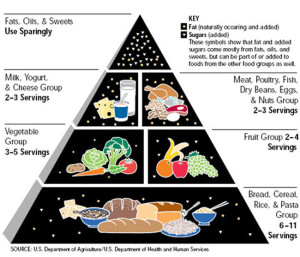Today I completed the US Trans Survey, a comprehensive study gathering information that will be used to inform public policy towards transgender people in the United States. Trans, genderqueer, and non-binary folks: if you haven’t taken the survey yet, please do so now! Our data is urgently needed.
On paper, my answers to the survey questions are encouraging. I have never been assaulted or harassed due to my gender identity. I have never been fired from a job or made to feel uncomfortable at work as a result of my trans status. I have had positive personal relationships, and I have not experienced homelessness. My answers, of course, are only a tiny fraction of the trans experience, but they are mostly good news. Unfortunately, they don’t quite tell the whole story. At the conclusion of the survey, participants are asked to share a personal story of either acceptance or discrimination to help round out the picture of their experiences. I’d like to share here a selection from what I wrote:
In many ways, I have been very fortunate as a trans man in the United States. I have a supportive immediate family, a wonderful fiancee, and a full-time job. However, although my salary is enough to support me, I am struck by the difficult choices I’ve had to make because of my trans status and my inability to get comprehensive transgender health care.
I began my medical transition four years ago with hormone therapy, but my health insurance has never paid for any of my trans-related treatment. Because I am fortunate enough to be employed, I have been able to pay for my hormones out of pocket, and I felt secure in the idea that I would be able to continue doing this indefinitely. However, I was recently shocked to learn that my usual, trans-friendly pharmacy has been barred from issuing my normal hormone prescription, and that the only replacement available would be twice the cost. Because of this capricious regulatory setback, I’ve been unable to get my regular medication, and this puts my health in a precarious and unexpected place, at least for the short term.
This short-term situation is frustrating and difficult, but it doesn’t even compare to the long-term anguish of having to choose between chest surgery and the normal life expenses of a young professional. Although I do have health insurance through my employer, all of the plans available to me specifically exclude coverage for any type of transgender care; thus, I would have to pay out of pocket for gender-affirming chest surgery, even though my doctor would affirm that such surgery is medically necessary for my health and well-being.
The practical upshot of these policies is that I must continually choose between my own health and well-being and my ability to afford the purchases and milestones that will contribute to my long-term livelihood and stability, and that will help me to contribute to my family and community. I am getting married next year, but I can’t possibly afford a wedding alongside a surgical procedure, so I’ve delayed my surgery. After the wedding, I’ll need a down payment for a house — there’s another delay. Once my housing is settled, perhaps I’ll want to raise children with my partner. Will I have to choose between top surgery and infant expenses? I’m sure that I’m not the only transgender millennial being held back by tough choices between medical care and participation in the so-called “American Dream.”
The refusal of American health insurance companies to cover transgender-related care — and the failure of our legislators to require them to do so — is a national embarrassment that could have far-reaching economic consequences. Just as housing, employment, and other forms of discrimination have created a wealth gap between white and non-white households, I have no doubt that the denial of comprehensive medical care for trans folks will likewise affect our incomes, stability, and earning power.
To force transgender people to choose between medical care and major life purchases is to hamstring the economic potential of an entire class of people in the United States. These discriminatory policies are hurting us as a nation in both moral and practical terms. Allies, please urge your legislators to step up and ensure that all insurance policies provide comprehensive health care for transgender people!





